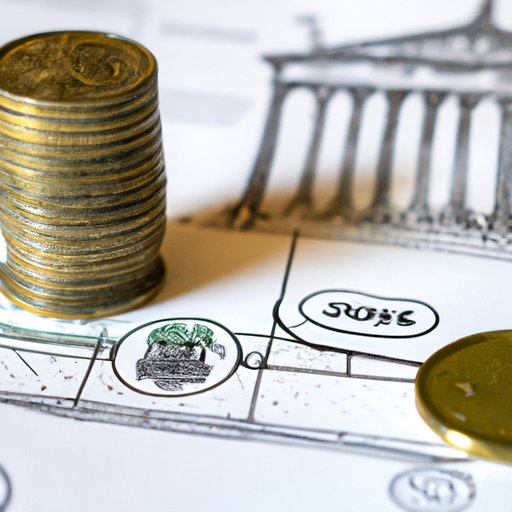

Who Creates the Money: An Examination of the Power Players and Ethics Behind Money Creation
Money is something we use every day, but have you ever stopped to wonder how it is created or who controls it? Money creation is a complex process that involves governments, central banks, and financial institutions. In this article, we will delve into the mechanics of money creation, explore the power players that control it, critique the current economic system, debate the ethics of who should control money creation, and examine the sociopolitical factors that determine control over money.
Demystifying the Mechanics of Money Creation: Understanding the Role of Central Banks
Money is not printed by governments or financial institutions, rather it is created electronically by central banks. When a central bank wants to create money, it simply adds a number to its own balance sheet. It then uses this newly created money to buy assets such as government bonds, which in turn injects money into the economy.
The central bank, therefore, has the power to create money out of thin air, and this power is known as the monetary policy. The central bank uses this power to regulate the economy, control inflation, and stabilize the currency. Without the central bank’s power to create money, the economy would come to a halt.
Examples of central banks around the world include the Federal Reserve in the United States, the European Central Bank in Europe, and the Bank of Japan in Japan.
The Power Players Behind Your Wallet: Exploring the Financial Institutions and Governments that Control Money Creation
While the central bank has the power to create money, financial institutions and governments also play a significant role in the process. Financial institutions such as banks are responsible for lending money to individuals and businesses. When they do so, they are essentially creating new money in the economy.
Governments also have a role in controlling money creation as they are responsible for regulating the central bank’s powers. They can do this by imposing limitations on how much money the central bank can create, and how that money should be spent. For instance, the government can instruct the central bank to finance infrastructure development projects.
Examples of powerful financial institutions and governments include Goldman Sachs, J.P. Morgan Chase, the Chinese Government, and the European Union.
The Endless Cycle of Debt and Money Creation: A Critique of the Current Economic System
The current economic system is based on the concept of debt. When financial institutions lend money, they do so with an interest rate. This means that the borrower must pay back more money than they borrowed, resulting in an endless cycle of debt. Money creation is also tied to this debt as newly created money is put into the economy through loans.
This system has been criticized as unsustainable as it creates an ever-increasing amount of debt that can never be fully repaid. Additionally, it increases wealth inequality as those already in debt receive less benefit from newly created money than those who are not.
There have been discussions of many alternative economic systems such as the resource-based economy, the circular economy, and the gift economy.
Money Out of Thin Air: Debating the Ethics of Who Controls Money Creation
Who controls money creation is a topic of much debate, with some arguing that central banks should have full control, while others argue that this power should be shared by governments and financial institutions.
Arguments for central bank control include the fact that they are experts in monetary policies and that they can operate independently from political agendas. On the other hand, arguments for shared control emphasize the importance of checks and balances and prevent one entity from having too much power.
The potential consequences of these different approaches are not yet clear, and it is up to society to decide which approach is most ethical.
Unfolding the Mystery of Money Creation: Examining the Sociopolitical Factors That Determine Control Over Money
The sociopolitical factors that determine control over money are complex and multifaceted. Some of the main factors include political stability, economic development, cultural values, and historical events.
For instance, countries with a strong democratic tradition are more likely to favor a decentralized approach to money creation, while countries with a strong central government might prefer centralized control. Additionally, the history of colonization and globalization has also had a large impact on control over money in many nations.
Examining these factors helps shed light on the way money creation is viewed differently around the world.
Conclusion
In summary, the process of money creation is complex and involves multiple actors including central banks, financial institutions, and governments. The current economic system is based on debt and money creation, which has led to criticisms of its sustainability and its contribution to wealth inequality. The ethics of who should control money creation are fiercely debated, and the sociopolitical factors that determine the control over money are also complex and varied. Understanding these issues is essential as they can have a vast impact on our lives, our economies, and our futures.
The path forward is not yet clear, but it is important to continue the conversation and seek solutions that promote fairness, sustainability, and ethical practices in money creation.




